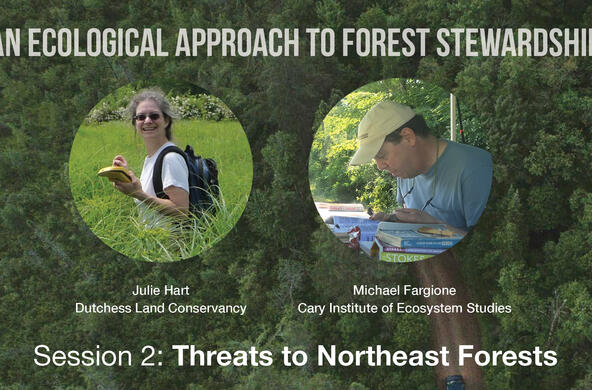The Harvard Forest, in collaboration with the Cary Institute of Ecosystem Studies, has launched a new Science Policy Exchange project on forest pests and pathogens. This project addresses growing concerns about damage to trees, forests, and local economies caused by introduced insects. The new project commenced with a two-day workshop on May 7 and 8, at the Cary Institute in Millbrook, New York. At the workshop, eighteen scientists, policy-makers, and land managers began to synthesize the most current research on this issue. Over the coming year, the group will develop specific policy recommendations aimed at reducing the introduction of new insects.
The goal of the effort is to prevent introductions of new insects like the Emerald Ash Borer and Asian Long-horned Beetle, which entered the United States by tunneling into palettes and other wooden packing materials used in international trade. They have infested forests and trees, leaving a path of destruction in their wake, and the costs of solving the problem are largely borne by local communities.
The science, policy, and management professionals at the workshop discussed the protective measures already in place to limit new introductions, and the gaps in our national insect defense system. Insect introductions are projected to increase with rising trade volume. Applying the latest scientific knowledge could strengthen policies and protocols to keep insects out.
The research synthesis and policy recommendations will be completed in early 2015, and will be accompanied by opportunities for stakeholders and policymakers to engage the scientists to advance the objective of insect-free trade. Harvard Forest staff contributing to the project are Science Policy Exchange director Kathy Fallon Lambert, Science Policy Exchange program coordinator Marissa Weiss, Harvard Forest director David Foster, and Harvard Forest ecologist Dave Orwig.





